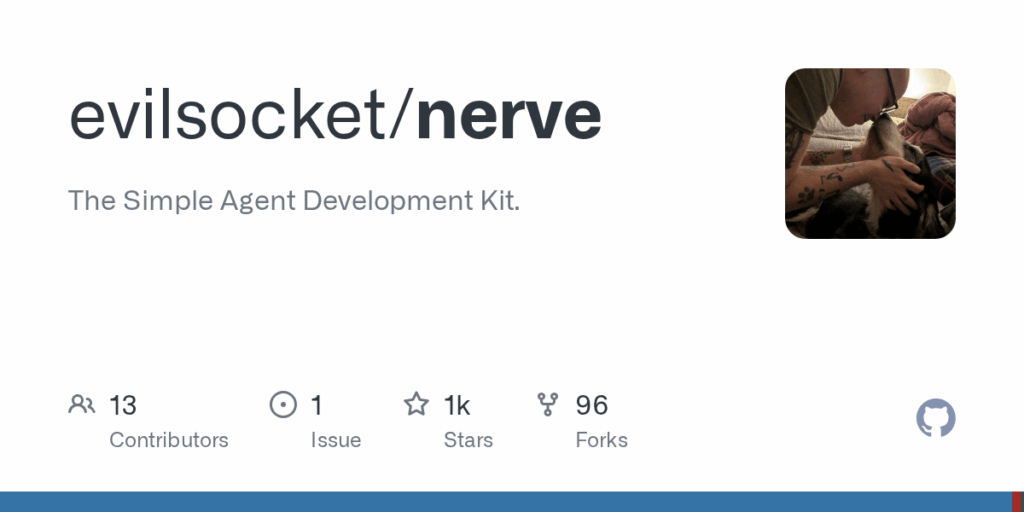nerve
Basic Information
Nerve is a lightweight Agent Development Kit (ADK) for building, running, evaluating, and orchestrating LLM-based agents using declarative YAML files and a command line interface. It is aimed at technical users who want programmable, auditable, and reproducible automation driven by large language models. The project centralizes agent configuration into single YAML files that include system prompts, tasks, tools, and variables. Nerve supports a variety of tool types including shell commands, Python functions, and remote tools, and is designed to be LLM-agnostic through an integration with LiteLLM providers. The ADK also includes evaluation features, workflow composition for multi-step automations, and native MCP client and server support so teams of agents can be orchestrated. Documentation, examples, a PyPI package, Docker images, and a community hub are provided for users.








